During the great depression when the dollar collapsed, basic items became currency. Any trip to the market would be better accompanied with items such as tobacco, or alcohol to be used as barter and trade items, rather than a pocket full of dollars purely because of the fact that they were worth so much more.
Bring the clock forward 80 years and we’re still seeing the same high value placed in everyday items over physical cash in countries that have suffered economic breakdowns, or have been crippled by war. Venezuela, currently the world’s worst economic collapse of this time, has seen an extraordinary surge in the value daily items due to its crippling inflation. A pack of popular brand condoms is more than USD$70 in Venezuela’s capital, Caracas. That value, in comparison to Venezuela’s current USD$4 per month minimum wage, gives brand name condoms an almost-golden value.
But they are not the only items that have become valuable for trade and barter in economic collapse environments. In this post we take a trip through time to find what items have been used as trade items instead of hyperinflated currencies, and what, at best, we can predict will be future household items that you should consider stocking, should times start to get tough again.
Why do items become more valuable than money in tough times?
Currency resembles a nation’s economic health. In an economic collapse such as the Great Depression, or Venezuela’s economic collapse, the value of currency is damaged. Things become more expensive over time as import, trade and manufacturing sectors weaken. As time goes on, the price of things rise and daily household items become more expensive. When the price of things rise, and the dollar falls, we get inflation.
Inflation is happening to us right now, and for many economically healthy countries, there is still an inflation index. For instance, the 2018 inflation rate for the US is 2.38%. In a year a pack of chewing gum that costs $1 this year, will cost $1.02 next year. According to reports, Venezuela’s inflation rate is more than 4,000%. That means our $1 pack of chewing gum will be $41.
If you couple this, with a supply and trade industry that is ruined by economic collapse, dead markets, and widespread job loss, things start to have a lot of value. This is also interlinked with banks closing down, creditors taking their money out of businesses, and the supply of cash seemingly halting as there is no way to draw money out of that great savings account some people have. As the value of currency declines, but the demand for items that aren’t available as much as they used to be rises, trade and barter in those items starts to occur. For instance, that packet of condoms could buy your groceries for the week. Or a bottle of alcohol could represent a valued trade for a month’s supply of toilet paper.
What do you have with you right now?
For most preppers, looking at what they currently have is important. It is the basis of what we have and what we know right now, that prepares us for anything that might happen tomorrow, next week or next year. For most of us, if an economic collapse happened right now, we’d be in big trouble. A lot of us do the regular shopping every week for household supplies and food to eat, and most of our money, whether it be daily transactions or savings money, is in the bank.
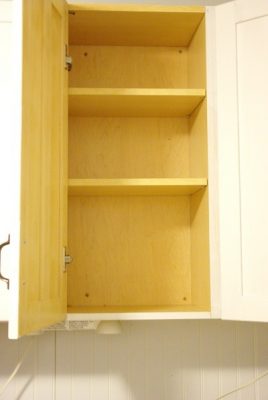
So think about this: if a rapid economic collapse was to occur tomorrow, and banks and food stores were to close, would you have enough supplies to live? What daily things do you use that would you desperately should they run out?
For a lot of preppers, thinking about this circumstance warrants having enough prepper supplies to be well off in a circumstance like this. Most of you who are reading this would have already attempted some form of prepping, whether it be just enough to get you buy for a few weeks, or a whole year’s worth of survival supplies for you and your family.
No matter what size your prepper supply is, the duration of an economic collapse will determine whether you have to start considering trading and bartering for goods and essentials. That is the problem with a financial collapse, we can’t really predict how long they will last or determine their severity. All we can do is make sure that we are best prepared for the issues that they bring.
A lot of what prepping is about is being self-sufficient, so that should something happen where supplies are cut off, you can still eat, drink, wash, cook, drive and live life. It differs from survival in that survival would be the things you do during an event itself. However as preppers, we act before something happens, so that we are ready for it, should it happen.
A lot of what prepping is, and the concept of barter and trade, is done between homesteaders, both in the past and this day and age. Homesteaders live in the country and are the prime example of people able to survive in a downturn as they are able to produce their own food, have their own water solutions, and have a trade system already developed between them and their neighbors.
As a homesteader, trade can be in the shape of helping out a neighbor with certain skills you might possess (carpentry and woodworking for instance), or it could be to trade fresh eggs from your chicken pen in exchange for fresh milk from someone’s cow. In an economic downturn, having skills and assets like this not only give you the ability to diversify your income, but also as a way to offer something to trade should you be short of supplies.
How to successfully barter and trade
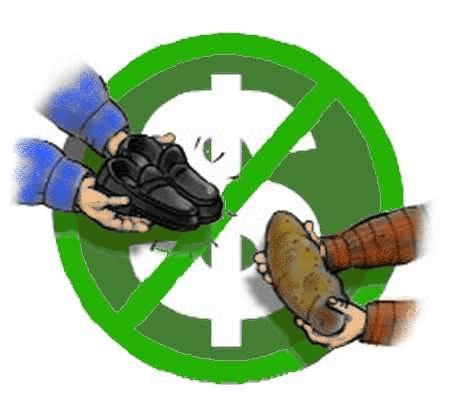
For the most part, I feel like bartering in a SHTF situation will only be amongst friends, neighbors and people in your circle. Unless there is a formal marketing in a popular street set up where you can run a stall, or barter for foods with your own goods, I don’t think there will be many barter or trade situations with strangers.
That’s good because if word got around that you have stockpiles of supplies lying around, you could be in a real risk of being the target of hungry, desperate scavengers, or just plain old greedy gangs or groups of people. This is the problem with being a prepper, it can be dangerous if you are the one with all of the food in a city or town of starving residents.
While this could be a likely risk in a worst-case collapse, the more realistic risks are those of getting ripped off by someone that is ultimately better at bartering than you are or coming across thieves. How can you avoid the risks of bartering in a post-collapse world? I think there are a couple of things, which might seem obvious to most, that you should ensure you do in any transaction where trade isn’t done with money and where sales are governed by laws of misrepresentation and fraud.
To avoid the risks associated with bartering, one of the most important things you can do is make sure it is in a public environment, or have others with you. Any thieves or just basic intimidators are likely to only try their tactics if there is no-one else around. Having that backup would just reinforce the fact that you are there to trade by a fair set of rules.

Second, know the value of the things you are trading for. If there is something you don’t know the value of, or to see if it is quality or not, take a specialist with you that knows about it. For instance, if you know nothing about motorbikes, you wouldn’t just buy a motorbike on your own without conducting a load of research or taking someone that knows what is right and what is not. The same applies to bartering, ensure you know the value of the things you are trading for. This is an important factor if you are considering trade as a way to survive in a SHTF situation, as the price of things will inevitably change, and you need to be up-to-date with those prices, otherwise, someone is going to buy things from you, and sell it elsewhere for twice the price.
When you are negotiating a trade, make sure you have an idea of what you are willing to pay and accept for yours and their items. Make sure you are clear on what it is you need by looking at your current supplies and making a list of what is necessary. No doubt any good trader will try to barter useless items they might say you need or will find useful, scrap them. You are trading for what you need, not what you enjoy.
If you are trading a service, or even just basic items, be clear on the terms of the trade, what you are trading for and the quantity of each item. Having a very clear set of terms is easy when trading items, but when you are doing a service or skill, such as fixing someone’s car, there are a lot of variables that can go wrong, such as if the car stops working a few days after you fix it, if new parts are needed who will pay for them, if it works, but not to your customer’s satisfaction what happens?
When it comes to agreements about services, there is an entire field of contractual disputes and laws. For the most part, having your own set of terms and being clear about them is the best way to be sure of an easy agreement, if it is available, one of the best things you can do is write down the terms, so that should any dispute occur once the agreement has commenced, you can refer to your contract in writing.
The difference between investment items and trade items
A lot of prepper blogs recommend investing in precious metals such as silver and gold. This is primarily because prepping is about investing. You invest time, invest research and invest in a supply that you hope will pay off for you and your family should a natural disaster, economic collapse or any other SHTF situation ever occur.
For precious metals, I don’t think there will be much worth for them during one of these situations. As a trade item, it bears no useable feature, unlike bullets, diapers, condoms, food and water, which are items that are traded as valued items in collapsed economies. But don’t get me wrong, gold is an important item for preppers. Why? Because while gold and silver is not very useful during a SHTF situation, it becomes very useful as society starts to rebuild itself. Seeing gold as an investment to sell is a much stronger and practical preparedness strategy that seeing it as a barter item during the event.
The reason why I use gold as an investment item rather than silver, is that out of the past eight significant biggest economic declines, six of them had significant increases in the value of gold, whereas the value of silver fell. The price of gold correlates with the value of currency. Gold benefits when there is an economic downturn. When stock markets fall, investors buy gold, in turn, driving the price up.
Trade items, however, are different to investment strategies such as gold, as they are survival items used during an event, as a means of exchange, and are a method of investment to ensure that you are able to trade efficiently, should an economic system crumble. There are, however, different investments you can make, rather than just in a stock of supplies.
As a way of bartering, you might be able to trade a service or skill you have, which might be in plumbing, electrical work, woodwork, or some other specific skill you have. Not only can this be done for food and supplies, but you can also trade that skill for cash-in-hand work, which gives the skill the benefit of being able to be used if you were to lose your job in an economic downturn.
So while you are preparing for rough days ahead and checking up on your prepper supply of non-perishables, water, and supplies, it might be worth stocking up on something can actually be free, which is to learn a new skill. There are a lot of valuable skills out there, from gardening, material work, animal husbandry skills, nursing skills, repairs or even defense. Whatever your hobbies might be at the moment could also become a formidable skill, should society change to the point where that skill comes in demand.
What are good bartering items to be used in a SHTF situation?
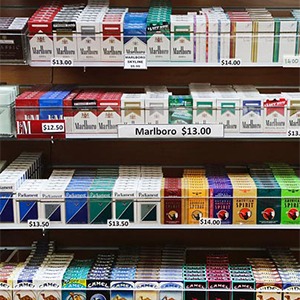
I have a lot of things in my prepper supply that would be very valuable should everyday supplies start to run out. But the issue is, do I want to part with them? Probably not, especially if they are something I need.
So it puts me in a hard place where I would have to balance need over the value of trade. But we can prepare for that circumstance by preparing a seperate section in our supplies for trade. This might be a small collection of things you use every day, which can be added upon as time goes on and you find new goods to add to the list.
There are a lot of preppers that keep an excess amount of everything, adequate to what they need, rather than stockpiling a separate pile of tradeable items. However, separating those supplies ensures that you don’t dip into your trade items should the SHTF, and that you can identify how much value you might have in your trader’s wallet, for the lack of a better term.
If you are just starting out in your collection of trade items, or you are looking to add to that supply, I have compiled a list below of 30 items that I have found have found will become valuable commodity items in economic collapse and SHTF environments, and why they would be useful. Many of these items have been used as trade and barter in historical post-collapse events for instance, during the Great Depression, in Venezuela’s economic collapse, or in Sarajevo during the Bosnian War.
30 Best Valuable Items For Trade
In an economic collapse or SHTF scenario
| NUMBER | ITEM | WHY? |
|---|---|---|
| 1 | Medicine | This covers things such as antibiotics, pain-killers, and allergy medications. Venezuela's financial collapse has seen the value of medicine soar, with hospitals having to purchase medication from black market importers just to treat patients. |
| Foods | Even in a disaster, food is one of the first things to run off the shelves as most people won't have a pre-stocked food supply. Things such as non-perishable foods will be the most valuable. | |
| Alcohol | During the Great Depression, alcohol was in prime demand with people distilling rum and gin themselves. As a commodity, alcohol can also have medicinal and hygienic purposes. | |
| Fuel | As fuel supply lines shut down and stations close, fuel comes in limited supply in SHTF situations. It is important for those using generators and vehicles. | |
| Propane Gas | Many homes rely on gas for hot water and cooking. One small bottle can last for a month with a gas cooker system to boil (purify) water and cook foods. | |
| Batteries | Rechargeable and normal batteries are useful for a number of things, but as the power starts to go out there will be a reliance on flashlights increasing the need for batteries. | |
| Condoms and Contraceptives | As mentioned in the beginning of this post, condoms in Venezuela are going for USD$70 a pack. People are still active when the SHTF | |
| Baby Supplies | Baby food, diapers, baby asprin and ointments. All baby supplies are a commodity that is used every day and needs a constant use supply. While reusable diapers exist, things such as nappy rash ointments and baby aspirin is a much-needed item. | |
| Chickens | Chickens are egg producers and live off scraps. If you can manage to feed and water them, the eggs they produce will be worth their weight in gold. In 2016, a dozen eggs cost USD$150. If you have a rooster you can produce excess chickens to sell to others. | |
| Feminine Hygiene Products | These are must-have items for personal hygiene that are needed every day in stores. Tampons in Venezuela are the cost of three months minimum wage. | |
| Toilet Paper | Life's luxury in fine white sheets. Toilet paper is hard to replicate with magazines, newspaper or tissues and is something that most people will run out of very quickly. | |
| Vitamins | The change in diet as people start to eat less, or a void of fresh foods will leave many without access to the right nutrients and vitamins in a healthy diet | |
| First-Aid Supplies | Bandages are not so important in this as any piece of clothing can be used. First-aid supplies needed will be things such as antiseptic wipes, band-aids, antibacterial creams, suture kits and specialist first-aid treatment equipment. | |
| Tobacco | For some, this is obviously going to be a much more necessary item. I am a non-smoker, however I can see how, if in limited supply, tobacco would be a great item to have for those in need. | |
| Soap and Shampoo | Personal hygiene is another commodity that we use every day, and as supply routes slow or stop, stuff that we use to clean our hands and bodies every day will quickly run out. | |
| Seeds | Seeds are a trade-able item that work well for those that now how to cultivate good gardens in order to grow their own foods. Give the right person seeds and they can grow a farm and tap a sustainable food supply. | |
| Can Openers | When the SHTF the last thing that's left after fresh foods run off the shelves or expire are canned foods. For those that don't have them, cans are a key to food. | |
| Powdered Gravy | Freeze-dried food, non-perishable food and basic grown foods can taste very bland, but gravy adds a much better taste to things that wouldn't generally taste great. | |
| Lighters and Matches | Sure, there are a number of ways to light a fire, but in the home, lighting a gas cooker is a lot easier with lighters than two sticks. | |
| Candles | An easy way to provide light at night when the power grid crumbles and a considerable item for SHTF environments. | |
| Powdered Milk | Powdered milk is so scarce in Venezuela that it is sold by black market vendors at 100 times its normal shelf price. | |
| Pasta | Pasta in packets can be kept for quite some time and in Venezuela's economy, is sold by black market vendors at 200 times the original price. | |
| Shoes | I wouldn't say it is a good idea to start stocking every pair of shoes, but if you have old ones, it might be worth keeping them. The cost of shoes in Venezuela ranges from 300% to 900% higher than the same brand in The US. | |
| Water Filters | If the grid goes bust and you are caught without a water filter you might be in trouble. There are going to be a lot of people out there without a clean water supply and no way purify water (without cooking it), so a few cheap water filters will no doubt be worth some money. | |
| Coffee | Coffee is a world trade commodity already. Just like smokers will pay for cigarettes and tobacco, coffee is equally an item that can be used to trade and will be rarely available given the lack of country imports in an economic collapse. | |
| Flashlights | At the moment, high-quality flashlights are cheap to pick up (less than $10). But when the grid goes down, everyone is going to be needing them, and it is highly likely not everyone will have one. | |
| Duct Tape | Duct tape is one of those items that is well-known throughout the survival world for its endless amount of uses. Whether it be patching up clothes, fixing leaks, or taping wounds, duct tape is a good bartering item. | |
| Generators (solar and fuel) | If you have recently bought a back-up generator, keep the old one for now. When the SHTF everyone is going to want secondary power methods and will be willing to pay a lot for it. | |
| Construction and Repair Tools | As an economic downturn sets in people are going to start doing more of their own projects to increase the self-sufficiency, fix the home, or for car repairs and other odd jobs. You might have the tools they need. But you might want to use these as a way to provide a service. | |
| Solar Lights | Solar lights are a great commodity to stock because they are cheap (at the moment) they are sustainable (no power needed) and they provide what we need at night in a sustainable manner. |
I have made this list based on research on what items have become valuable in past economic collapse and SHTF situations where supply lines shut off and resources become limited. I am sure that a lot of advanced preppers out there that have a good stockpile of food, water, and supplies will no doubt have many of these items in their stockpiles already. I also have many of these items not only in my own stockpile, but in a separate section designed to be a backup, to be used either as trade, or to help out others should they need it. I feel as though a ‘help others’ stockpile is a good way to make a community and build a team of people you can work with to regain existence as a self-sufficient community.
While these items have been seen as valued items in the past, or they are currently highly valued items in SHTF places in the world (such as Venezuela), I would not call this list definitive by any means. There are a lot of other items that have had, and will have equal value to these in a SHTF scenario. If you do know of any other items for trade and barter that you have identified, or you believe will become useful in a SHTF situation, please leave a comment below to inform the community.

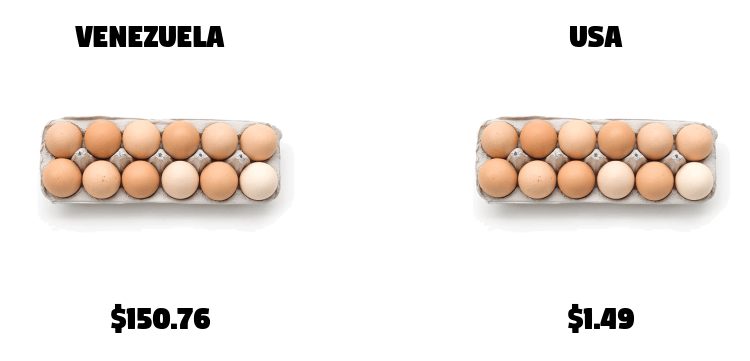
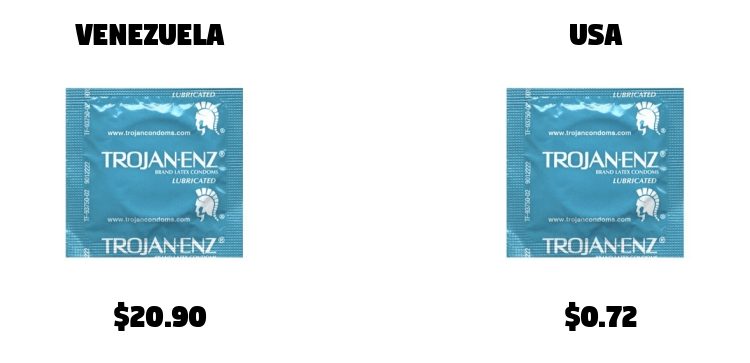
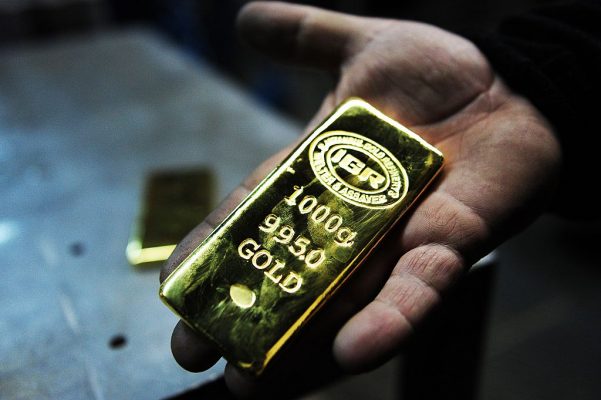
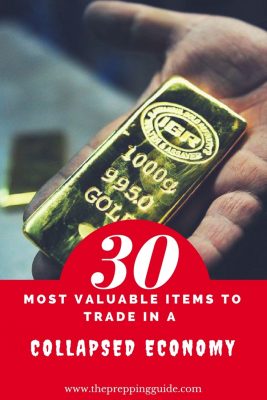
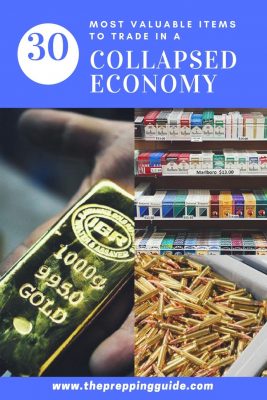
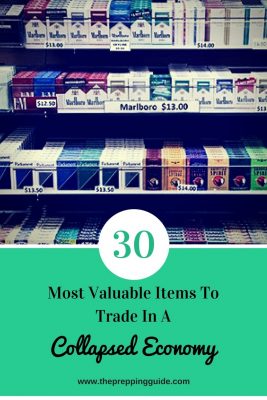
In a shtf barter, I will be trading some of my stores for silver and gold. Booze, condoms, water for PM’s.
This is also a good idea. Using what people need to get gold and silver. More and more am I finding people that don’t even have a stockpile of food and water but have gold and silver. Odd right?
We live in an area, in the mountains, where gold is plentiful (relatively speaking – it does take some work) in every stream. It’s not going anywhere, so we’ll wait a while before we stock up on gold nuggets. (Less for others to steal.)😉
I’m a doctor, a singer-songwriter and musician, an author, and I know how to hunt, gather, and make medicinal tinctures etc. I’m practiced in most practical skills. My husband and I also know how to teach ‘school’🙄 (we homeschooled our large brood). We’re not planning to acquire ‘stuff’ for trading. We’ll use our skills instead.
May God Bless all of our efforts.🙏🏻
Love and All Good Things,
Jesse.🌹
AFTER you are well prepped – prepping correctly for bartering is advantageous – no such thing as being prepared for absolutely everything that could occur during a SHTF …
Along those very same lines – the elites thru out history have been made by taking advantage of situations – nobody says you can’t take a swing at the odds that your SHTF made nestegg of precious metals, jewels and antiques will change your post-SHTF life ….
I’ll be using those precious metals as an investment for the rebuild post-SHTF that’s for sure. It’s about taking advantage of an unfortunate situation by being well prepared before it happens!
While it isn’t directly barterable…small containers/ziploc bags should be kept. If you have a 45 ounce shampoo bottle it is possible that no one has enough to trade that equals the value of that huge bottle. (or doesn’t want to blow their entire stock obtaining only one of the 10 things they are hoping to trade for) Having small containers to break it down into (therefore not revealing your entire stock) maximizes your trading value of ONE easy to store bottle of shampoo. Squeezing part of a tube of antibiotic cream/ointment into the corner of a small ziploc bag increases the number of people you can help with that tube. (The recipient just needs to stick a hole in the corner of the bag to squeeze the cream/ointment out) Water bottles would allow you to break down a large bottle of laundry detergent into more manageable trading bottles. None of those things cost a great deal of money….just hang on to those little bags buttons come in, jars from hotels ketchup and jam comes in, and store some of your emergency water in Single serve bottles. Presto…you can now take advantage of large size sales prices and cut down on the storage space for your barter closet.
Keeping small containers, bottles, bags ect is a very smart way to trade bulk items. Thanks for the tip!
That’s a great idea Cass! Cheers!
and maybe save your old Rx bottles to subdivide items into for trade.
Great idea. Even just basic containers and jars would help with this!
nobody seemed to mention bullets. Small, easy to conceal and in whatever quantity is necessary. Just be sure you know who you are dealing with…
Definitely a great one. It just depends on where you live!
There are actually places out of America where guns aren’t legal where people also stockpile a few cheap air rifles with pellets. Pretty good idea also just for hunting alone, let alone security!
1,2,3
.22 LR
12 gauge shells
9mm
Ammo is the absolutely WORST thing to barter with. You must remember that you’re bartering with I’ll prepared people to begin with so the most likely don’t have anything of value for bartering. Anyone who needs ammo is already in a desperate situation and you just let them know you have what they need. Are you sure you want to give these people ammo? Think again.
If you know the person. You can trade bullets to a hunter for deer or any meat they may hunt.
Vintage double edge safety razors and blades.
I think a much needed skill would be, hair cutting. I don’t think I would trade ammo, except perhaps to someone I knew well. Air gun pellets. Rent out your air gun for something of much greater value than the gun and maybe a share of the game. It might be good to have a pair and a spare of them (air guns). Folding knives of all sizes.
I can cut hair,did my husband’s for many yrs. Cut my own also.
Nice list and additions from comments as well. But general imagination of the “post disaster trade / market” with quoting
For the most part, I feel like bartering in a SHTF situation will only be amongst friends, neighbors and people in your circle. – end of quoting
Never worked in history like this. Disasters are cradles for black markets when everybody trades everything. Europe under nazi occupation, totalitarian socialistic countries, Balkans in 1990 th…. ask your soldiers and marines how it was / is in Iraq and Afghanistan with trading.
My point : get goods and study trades and skills for bartering. ( Do hope we will not need it, but let’s be prepared)
Someone had mentioned pill bottles which I do save, but I save them for making and storing tinctures for medications. I think you could become very valuable and protected if you knew how to make tinctures and other herbal remedies. Worth getting a book or two to study herbal cures.
Canning jars and lots of lids!
I would think salt would be a good item to stock up on.
I live in an apartment and not even room for my own prep items.
A lot of people can not afford to buy gold now a days. One ounce gold pieces possibly cost over $1000 each.
The U.S. economy is more diversified thay Venezuela’s. Their #1 resource Is oil.
They’re were they are at because the did not diversify their economy. The U.S. dollar is accepted all over the world. It does not matter what you’re buying( something Legal or illegal). In many cases; black market dealers might insist on being paid with Amer. dollars. It’s been that way for years
The dollar store sells dawn, laundry detergent and cleaners in small bottles. I have a few saved for bartering later.